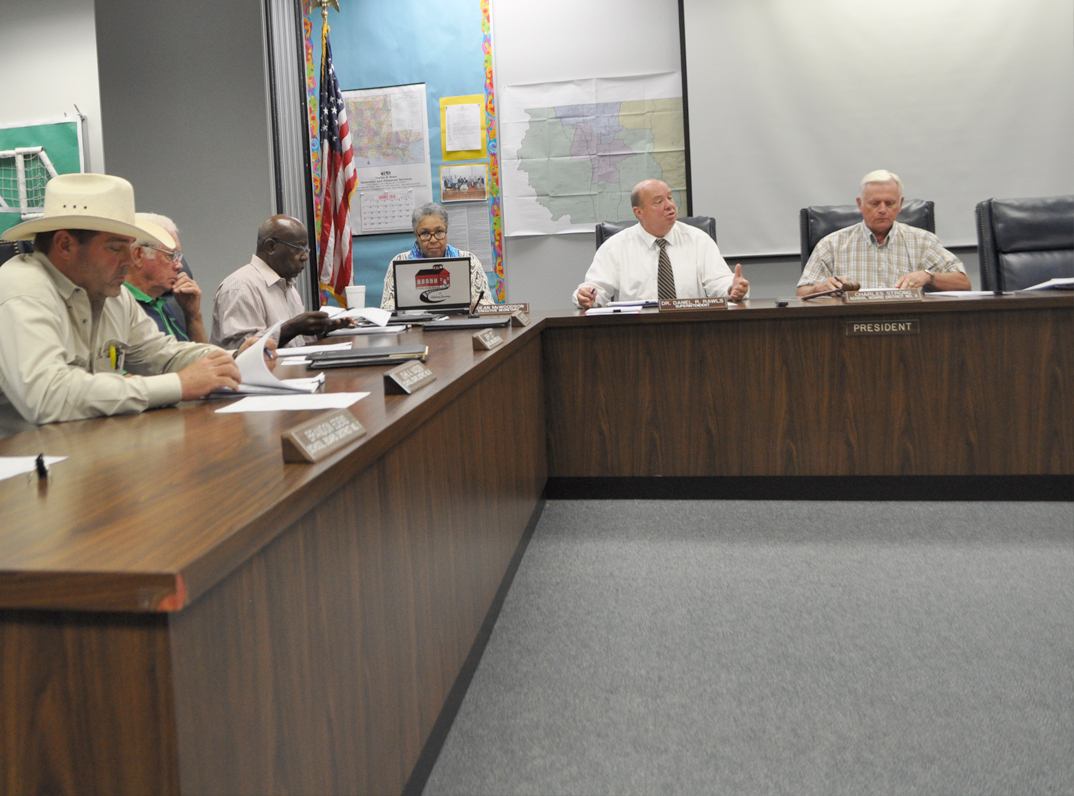Webster Parish students are getting the tools they need to prepare for college and the workforce, school officials say, but transitioning to a new curriculum in math and reading remains a challenge.
District 9 Board Member Frankie Mitchell, curriculum committee chair, has said in past board meetings they need to refocus their attention on educating the students.
“Every board member ought to be concerned, because we’re in the business of educating boys and girls,” she said. “I do think we need to focus on reading, writing and arithmetic, as they used to say.”
Mitchell says students are now getting a higher level of skill sets in the new curriculum.
“I think because we’ve gone to a level of higher thinking skills, our kids are not doing well, because they’re going from ‘you tell me the answer and I’ll give it back to you’ to ‘you have to think, you have to analyze and you have to evaluate,’” she said. “With the new curriculum, that’s the skills they’re calling for.”
Superintendent of Schools Dr. Dan Rawls says the answer is complex in that the curriculum is now in a state of transition. Teachers are using “crosswalks” or transition materials to teach the teachers how to transition from the Common Core State Standards to the new Louisiana standards.
“One of the problems you get into is that teachers do not know how to structure, map the amount of time they need to make these changes,” he said. “They’ll pick up the curriculum and start teaching and get down to the test and there’s a whole section they haven’t gone over. In other words, they didn’t have enough time to get it all done.”
He says another issue is the state has to understand the teachers have to give the students a foundation in which to build upon to the new material.
“What happens is you’re teaching a child a new objective and new material and he doesn’t have the foundation knowledge for that objective,” he said. “In math, that’s extremely dangerous.”
Becky Brown, staff development facilitator, says the state has gone to Eureka Math for grades K-12, which came in with Common Core and remained in the new standards.
“We know that it is a very rigorous curriculum,” she said. “We know that it does challenge kids as well as our teachers. We’re doing a lot of planning this year, and support our math teachers to help them better understand it so they can better teach the children.”
While science will not change to the new standards until the 2017-18 school year, Brown says the math will be the main focus this year, because that’s where the lowest scores are.
“On our state tests, that was an area we are very weak,” she said. “The kids had to solve problems with word problems. We’re really working on math, because that’s an area we need to strengthen. It is a change in curriculum, but when you look at how we’re competing globally, you look at our National Assessment of Educational Progress scores, we have fallen dramatically in math behind some of the other countries.”
Japan and Singapore are two countries that have been using a problem-solving curriculum for many years, and Brown says they are outperforming the U.S. dramatically.
“We know that when we start looking at testing not just nationally but internationally, here in Louisiana, we know we have to do better,” she said. “We have a lot of work to do.”
Eureka Math was chosen because at the time, it was the method that most aligned with the state testing, Brown said.
J.L. Jones Elementary Principal Dusty Rowland says the school’s math scores were better than their English Language Arts scores because teachers spend so much time focusing on strategies to help the students weed through the words and get to the math.
“At our school, my math teachers work really hard with those kids to learn key words, number words,” she said. “When we went to Eureka Math, it was a lot more difficult, and we had to try to help them figure out the math in the word problems.”
Giving parents resources to help their children has helped as well, she said.
“Your testing is not just basic computation anymore, and in order for them to be successful on the math portion of the LEAP tests, you have to be able to read,” she said. “That’s what we’ve been focusing on for the last few years, teaching them strategies that will help them pick out the math in the word problems.”
Last week, a math coach and consultants were brought in during teacher professional development to help teach the teachers how to transition into the new curriculum in math, Brown said. Rawls says the focus was on the two schools that had the lowest scores, Brown Elementary and Webster Junior High School.



